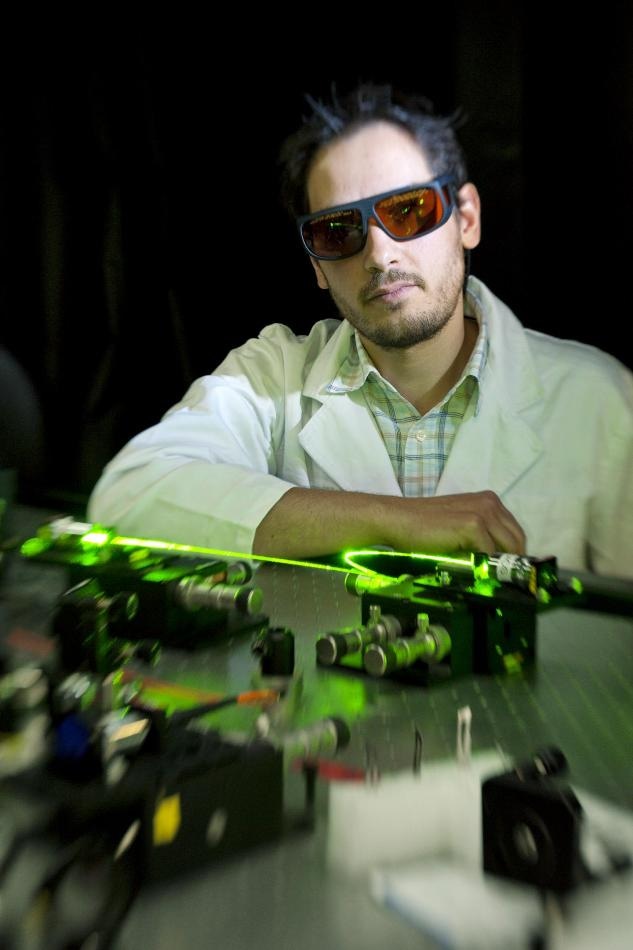Oct 18 2016
 Georgios Tsiminis in his photonics laboratory.(CREDIT - University of Adelaide)
Georgios Tsiminis in his photonics laboratory.(CREDIT - University of Adelaide)
A research team at University of Adelaide has built a one of a kind optical sensor that can sense vitamin B12 in diluted human blood. This would be a first step towards an economical, broadscale, portable vitamin B12 deficiency test. Vitamin B12 deficiency is linked to an increased risk of Alzheimer's disease and dementia.
This type of sensor device would enable vitamin B12 levels to be monitored in high-risk patients and early intervention - to replenish vitamin B12 levels when low - and help to overcome the limitations of existing testing techniques which are expensive and time-consuming.
The study conducted by researchers in the ARC Centre of Excellence for Nanoscale BioPhotonics (CNBP), the Institute for Photonics and Advanced Sensing, and the Schools of Physical Sciences and Medicine, was presented at an international biophotonics conference in Adelaide - the inaugural SPIE BioPhotonics Australasia conference. The science of using light to analyze and measure biological material is referred to as biophotonics.
Vitamin B12 deficiency has been shown to be a potential modifiable risk factor for dementia and Alzheimer’s disease and is associated with cognitive decline. Older adults are particularly at risk of B12 deficiency due to age-related reduction in absorbing vitamin B12 received through their diet. Our sensor is an early first step towards a point-of-care solution for measuring and tracking B12 in healthy ageing adults. This would allow doctors to monitor B12 levels and intervene as soon as B12 deficiency was detected.
Dr Georgios Tsiminis, Research Fellow, University of Adelaide
The sensor is currently in a proof-of-concept stage, but with development it has a number of potential applications.
“Currently our device could not aid in diagnosing vitamin B12 deficiency in a general practice setting,” says Dr Tsiminis. “However, this is the first time a rapid technique based on optical spectroscopy has been shown to be able to detect vitamin B12 in human blood serum. We believe this is a very promising first step towards achieving this goal.”
The optical sensor measurement of B12 in human blood can be done within a minute and requires minimum preparation. This is the first time vitamin B12 was measured in human blood serum without the need for a complete laboratory test.
The sensor uses an optical measuring method known as Raman spectroscopy which generates a distinctive optical fingerprint of a target molecule, in this case vitamin B12.
Our method provides a realistic basis for a system that is portable, cost-effective, and affords rapid results, along the lines of the pin-prick test for diabetes. Time and cost limitations currently mean that regular and frequent B12 measurements are not being carried out. Having such a device could make this testing routine, potentially having a real impact on dementia and Alzheimer’s disease.
Dr Georgios Tsiminis, Research Fellow, University of Adelaide